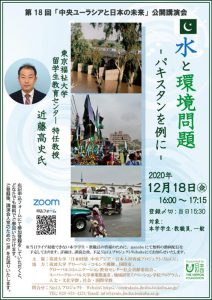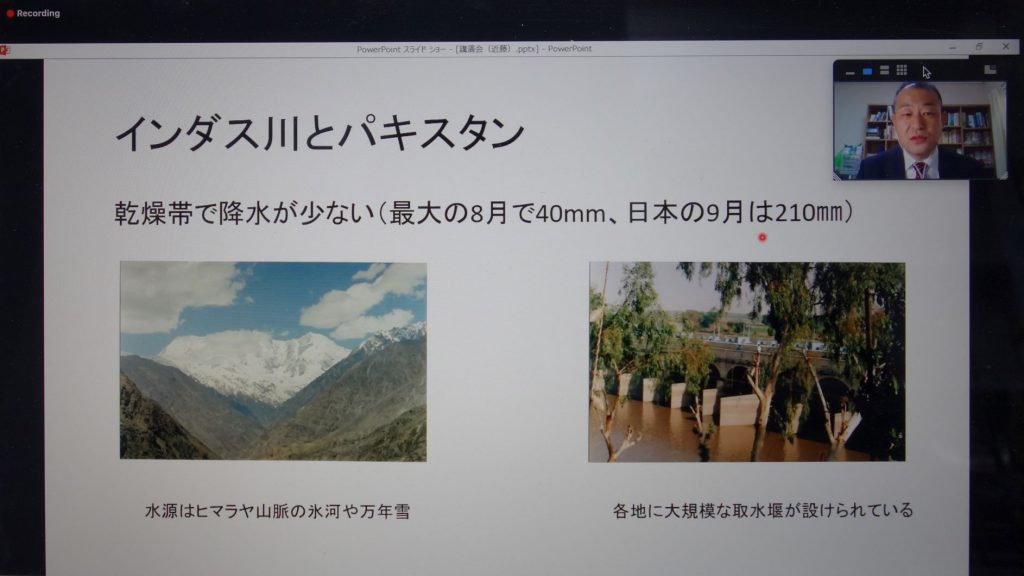On Friday, December 18, 2020, the 18th public lecture series “Central Eurasia and the Future of Japan” was held. This time, Dr. Kondo Takafumi, specially appointed Professor at Tokyo University of Welfare, was invited to give a lecture entitled “Water and Environmental Issues: Pakistan as an Example.”

For this lecture, there were many citizens who wished to participate, and about 50 people joined the lecture. Dr. Kondo is currently researching contemporary history in Pakistan, as a result of his experience staying there as a special investigator at the Consulate General of Japan in Pakistan. Focusing on Pakistan’s political and social issues, especially the issue of water, this time he participated in the “Asian Environmental Project” at Shimane Prefectural University, where the book “Contemporary Asia and Environmental Issues” was published from. He spoke about the environmental issues of Pakistan from the book.
The “water” issue is also the goal set out in SDGs Goal 6, “Ensure access to water and sanitation for all”, and it is often discussed that it is difficult to solve in one country alone. Dr. Kondo’s story let us understand that even if we simply say water problem, we must face further social problems in order to solve such issues as the problem of securing water resources and the problem of water pollution. In the case of Pakistan, he explained how the country not only shares a water resource called “river” with India, with which it has a tense relationship, but also how it is dealing with the reality of being a country located downstream from the river, and the difficulty of solving the problems of garbage and water and sewage systems, which are the main causes of water pollution. The water problem in the country is a very multilayered factor, and we felt like we have seen a diagram of a typical dilemma in developing countries.
This lecture scene was broadcast on Manaba from December 21, 2020- January 3, 2021.




